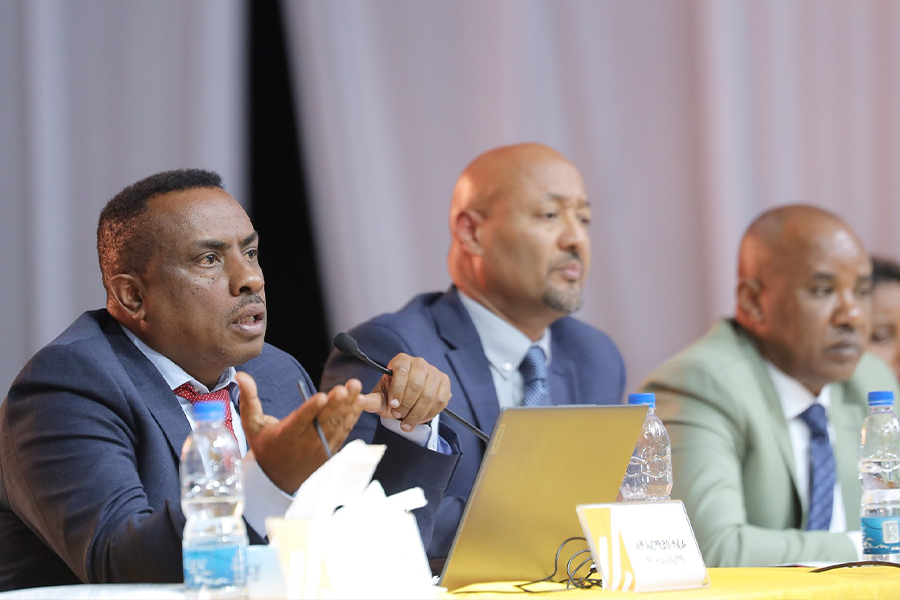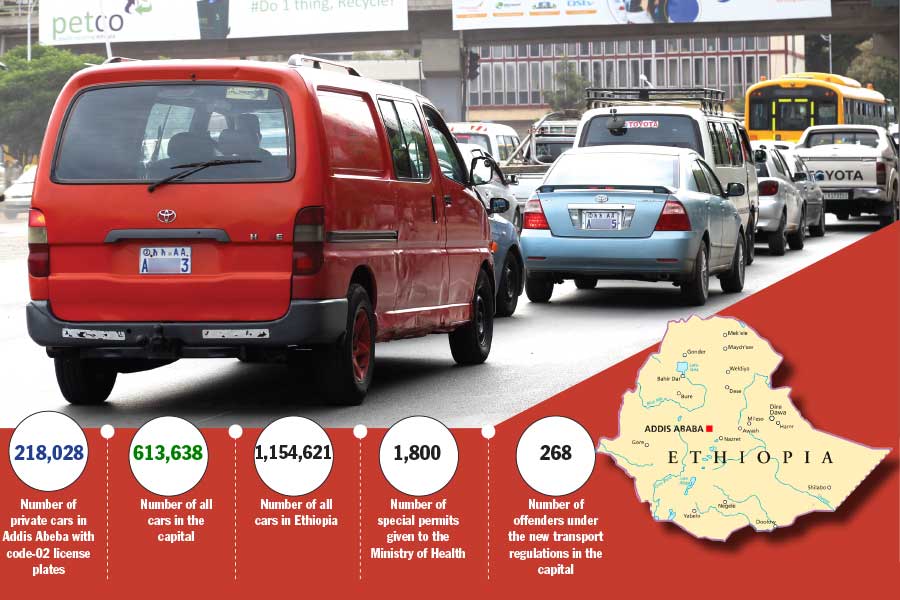
Sep 21 , 2019
By Tibebu Bekele
In 1974, Hailesellasie’s government tried to introduce some changes in the educational system. Dubbed the Education Sector Review, it was meant to revolutionise education in the country. Instead, it ended up ushering in a revolution.
Of course, it was not the only or even the proximate cause for the revolution. But it sure is a good illustration of the impatience of the revolutionaries of the time, mainly university students and teachers. The call for change was everywhere. I think no one, including the Emperor, failed to see the need for change. The difference was about what kind of change and how fast. That was the million-dollar question.
Indeed, Hailesellasie was a reformer. He built a civil service from scratch and his legacy in introducing modern education to the country is still intact and uncontested. In fact, it can be argued that it is because it is one area that is closest to his heart that when he was being battered by all sides for change, he tried to bring sweeping change to the educational sector. That was his portfolio, an area he knows best. Besides, it was an area that would be the least controversial, he must have thought. Who would stand in the face of change to the educational system? Surely not students and teachers!
How wrong he was. When a young population is smitten with the romance of revolution, there is nothing that is not controversial. As the old revolutionary song says “beabyot gize yelem tikaze,” roughly translated, “there is no time for sentiment during a revolution.”
There was no time for sentiment or debate. There were hardly any policy discussions or alternative suggestions. Even in the campus of the then Hailesellasie University, where there was relative academic freedom, the intellectuals of the time were too busy throwing stones and plotting the overthrow of the government that nobody seems to have stopped to ask what happens the day after the fall of the government.
Forty-five years later, there is still the same debate about yet another educational reform package. Some of the changes that he was roundly criticised for then do not look that bad now. Come to think of it, I wonder how many of those that were out front vehemently opposing the policy then really knew what it was about? How many would have had a deeper understanding of the policy than what they have heard through the grapevine? I wonder how many of those young people, now grey-haired gentlemen and ladies, having miraculously survived the carnage and chaos that was unleashed, look back in regret and wish they were a little bit more patient; a little more understanding about the complexities of governance; the difficulties of introducing change in an old polity.
There has been a lot of talk of change and reform packages in present day Ethiopia. The educational reform package and the Homegrown Economic Reform Agenda to mention just a few among the many. It is encouraging to see a few public intellectuals and concerned citizens trying to engage in a well-informed policy debate. Some are even trying to suggest alternative policy prescriptions. But they are depressingly few.
The majority of the noise, especially in the political arena, is cynical mudslinging and name calling. Most of the discourse is devoid of any reason or logic. The opposition is driven by hatred and anger, not intellectual rigour. There is a rabid call for change and revolution. There is even a call for the resignation of the Prime Minister over every little offence. Once again, here is what nobody is talking about. What happens the day after?
The last thing this country needs now more than ever is another revolution. Change is needed. But when it comes, for a change, this time, it should come through the ballot box.
For that to happen, politicians have to stop throwing stones and start sharpening their policy tools.
PUBLISHED ON
Sep 21,2019 [ VOL
20 , NO
1012]


Fortune News | Apr 25,2020

Radar | Jun 03,2023

Viewpoints | Jul 13,2024

Money Market Watch | Apr 13,2025

Viewpoints | Nov 02,2024

Fortune News | Apr 20,2019

Radar | May 18,2024

Agenda | Apr 22,2023

Fortune News | Jun 22,2024

Radar | May 27,2023

Photo Gallery | 177979 Views | May 06,2019

Photo Gallery | 168188 Views | Apr 26,2019

Photo Gallery | 158929 Views | Oct 06,2021

My Opinion | 137034 Views | Aug 14,2021
Commentaries | Oct 25,2025

Dec 22 , 2024 . By TIZITA SHEWAFERAW
Charged with transforming colossal state-owned enterprises into modern and competitiv...

Aug 18 , 2024 . By AKSAH ITALO
Although predictable Yonas Zerihun's job in the ride-hailing service is not immune to...

Jul 28 , 2024 . By TIZITA SHEWAFERAW
Unhabitual, perhaps too many, Samuel Gebreyohannes, 38, used to occasionally enjoy a couple of beers at breakfast. However, he recently swit...

Jul 13 , 2024 . By AKSAH ITALO
Investors who rely on tractors, trucks, and field vehicles for commuting, transporting commodities, and f...

Oct 25 , 2025
The regulatory machinery is on overdrive. In only two years, no fewer than 35 new pro...

Oct 18 , 2025
The political establishment, notably the ruling party and its top brass, has become p...

Oct 11 , 2025
Ladislas Farago, a roving Associated Press (AP) correspondent, arrived in Ethiopia in...

Oct 4 , 2025
Eyob Tekalegn (PhD) had been in the Governor's chair for only weeks when, on Septembe...

Oct 25 , 2025 . By YITBAREK GETACHEW
Officials of the Addis Abeba's Education Bureau have embarked on an ambitious experim...

Oct 26 , 2025 . By YITBAREK GETACHEW
The federal government is making a landmark shift in its investment incentive regime...

Oct 27 , 2025
The National Bank of Ethiopia (NBE) is preparing to issue a directive that will funda...

Oct 26 , 2025 . By SURAFEL MULUGETA
A community of booksellers shadowing the Ethiopian National Theatre has been jolted b...